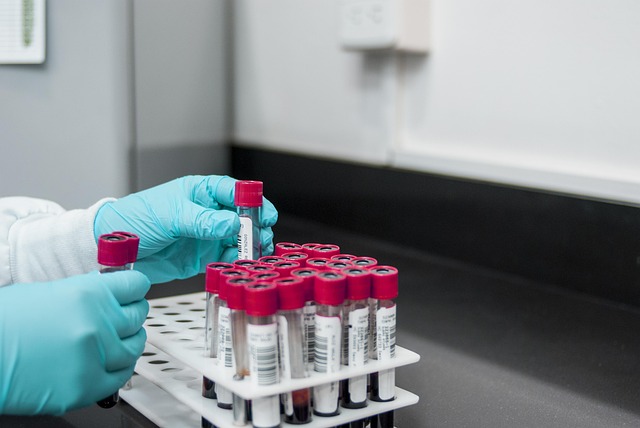UK General Health Blood Tests offer a vital tool for understanding and addressing reproductive issues by measuring key hormones like estrogen, progesterone, FSH, and LH. Non-invasive and quick, these tests help diagnose conditions such as PCOS and thyroid disorders, enabling personalized treatment plans for both men and women facing fertility challenges or hormonal imbalances.
“Uncover the power of hormone analysis—a game-changer in navigating reproductive health challenges. In the UK, understanding hormone levels through a comprehensive general health blood test is a crucial step towards optimal fertility care. This insightful article delves into the process, from interpreting results to fostering better reproductive outcomes. Learn how identifying hormonal imbalances can revolutionize your journey towards parenthood, offering targeted solutions for improved fertility and overall well-being.”
- Understanding Hormone Analysis for Reproductive Health in the UK
- What to Expect During a General Health Blood Test for Hormones
- Decoding Results: Interpreting Hormonal Imbalances for Better Fertility Care
Understanding Hormone Analysis for Reproductive Health in the UK
Hormone analysis is an essential tool in understanding and treating reproductive issues in the UK. This non-invasive procedure involves analysing a person’s blood to measure the levels of various hormones, offering valuable insights into their reproductive health. It is particularly useful for women experiencing difficulties conceiving or those with suspected hormonal imbalances.
In the UK, General Health Blood Tests often include hormone panels that check estrogen, progesterone, FSH (follicle-stimulating hormone), and LH (luteinizing hormone) levels. These hormones play crucial roles in regulating the menstrual cycle, ovulation, and fertility. By assessing their concentrations, healthcare professionals can identify abnormalities associated with conditions like polycystic ovary syndrome (PCOS), thyroid disorders, or other endocrine disruptions, which may be contributing factors to reproductive challenges.
What to Expect During a General Health Blood Test for Hormones
During a UK general health blood test for hormones, a healthcare professional will typically draw a small sample of your blood, usually from a vein in your arm. This process is quick and generally painless. The samples are then sent to a laboratory where they’re analysed to check the levels of various hormones in your body. Common hormones assessed include estrogen, progesterone, testosterone, and thyroid-stimulating hormone (TSH).
The specific tests can vary depending on the suspected reproductive issue, but generally, you can expect a comprehensive panel that evaluates your overall hormonal balance. Results are usually available within a few days to a week, and your doctor will discuss them with you, explaining what the levels mean in the context of your health and any potential reproductive concerns.
Decoding Results: Interpreting Hormonal Imbalances for Better Fertility Care
Decoding the results of a hormone analysis is a crucial step in understanding and addressing reproductive issues. This process involves identifying hormonal imbalances that can impact fertility. For instance, elevated levels of luteinizing hormone (LH) or reduced levels of follicle-stimulating hormone (FSH) could indicate problems with ovulation, which is essential for conception.
In the UK, general health blood tests play a significant role in diagnosing these imbalances. By analyzing specific hormones, healthcare professionals can gain insights into the reproductive health of both men and women. This information guides personalized treatment plans to enhance fertility care, ensuring that any underlying hormonal discrepancies are effectively addressed.
Hormone analysis through a UK general health blood test plays a pivotal role in understanding and treating reproductive issues. By deciphering hormonal imbalances, healthcare professionals can provide tailored fertility care, offering hope and improving outcomes for those seeking to conceive. This comprehensive approach ensures that both partners are optimally supported throughout the fertility journey.
